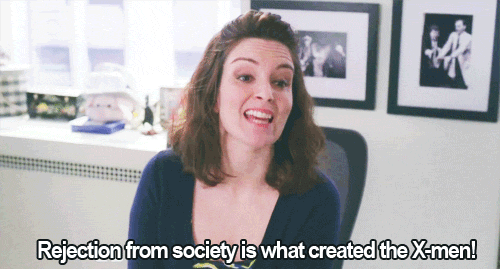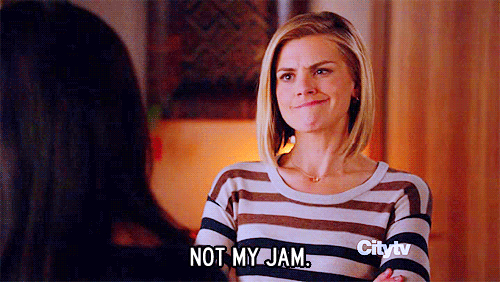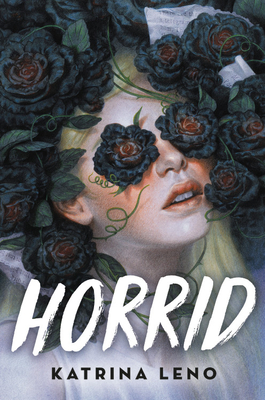Horrid by Katrina Leno
My rating: 4 of 5 stars
Karina Leno’s Horrid is like the old house it takes place in, a typical haunted mansion that you’ve seen a hundred times, but you still want to explore the dark insides.
I was excited when I came across the Owl crate addition of HORRID in a used bookstore, especially since the timing aligned with my YA Horror binge. I loved the cover, and the creepy poem in the beginning hooked me immediately. Leno’s use of the old rhyme is stellar, and as a writer that loves to add poetry to prose, I’m 100% partial to a creepy nursery rhyme being part of a novel.
That said, I went in with low expectations. I hadn’t heard raving reviews for Horrid. After all, I found my copy in a used book store less than year after it’s release.
Maybe that’s why I loved this story so much! I got a much better book than I anticipated. I adored the creepy house and garden, the Agatha Christie references, and the simple, classic feel to the writing. The first page is perfect, one of the best beginnings I’ve ever read. Horrid doesn’t have a flashy plot. It’s not groundbreaking. The characters are familiar because I’ve seen similar ones before. But Horrid is creepy, and sometimes I want less flash, more comfort. Horrid is a thunderstorm read, a book you grab over a quiet fall weekend and read by the window while it rains. Exactly what I needed at the time. I devoured it in two days.
I have a feeling the ending might throw some readers, which I can understand. If you aren’t prepared for a horrid ending (Sorry about the pun, I couldn’t resist), or you’re looking for something truly terrifying or out of the box, I recommend passing on this one. I happen to be in the mood for classically creepy when I read this, so I loved this book. That said, I’m ready to find an out of the box YA horror now.
View all my reviews
Tag Archives: writing
How to Write a Story’s First Page
Beginnings. They can be the easiest part of writing a new story, or they can be hardest. And there are so many incredible first pages out there. What makes those first few pages so compelling?
I’ve thought about this often, especially since I teach a class called “Great Beginnings” at the Muse Writer’s Center. In fact, I’ve studied the concept of beginnings extensively, pouring over craft books, going to conferences, and spending hours tucked between my library’s shelves, opening book after book to read the first few pages. After more hours of study than I can count, I’ve learned that almost every great beginning has four specific things in common.
- A hook (especially if you’re a new, unestablished writer)
- Setting to ground the reader
- Introduction to a Main Character (note the word Introduce)
- Clues to the story’ genre and theme
- A story problem with an emotional impact
It sounds simple until you need to squeeze all four factors into one page. One page is about 250 words. Around 75 sentences. Three, four paragraphs tops. How do you do this in a few paragraphs? After numerous blunders and a few successes, I’ve come up with a formula for a solid first page.
first line hook+ interesting world detail + character introduction + instant emotional distress.
I know, it sounds mean, instant emotional distress. But it works.
The first line hook is simple: write a single line that demands readers’ attention.
Subtle world building is important too, especially in fantasy, which tends to be where my work lands. No matter what genre your story is, it’s important to remember what makes world details important at this stage of the story. It isn’t the world details themselves, but how the main character views those world details.
The character’s voice has it’s moment to shine in a first chapter. Readers learn about characters based on what type of words they use and what they talk or think about. An adult will think about different things than a child will, and someone from the 1880’s will speak with very different phrasing than someone might today. Clues to what kind of story your telling can be given through word choice and tone, which can establish a creepy/funny story. A comedy probably won’t start on a dark, rainy night, but a scary story might. A middle grade comedy might start in a treehouse on a summer afternoon. It’s incredible how powerful word choice can be.
The backbone of this formula is the emotional distress. What does the character want, and why can’t they have it. What do they want to protect, or save, or gain, and what do they have to loose.
It’s easy to jump in to the “big” story problem, but in those first pages it’s best to use what I call a “perspective” problem. Something that matters to the main character on a small scale. Something that allows readers to get to know your awesome MC (main character) while also giving the reader time to care about what happens to the MC.
This “perspective” problem happens in so many books I couldn’t possibly name them all. In Harry potter, Harry is mistreated by his caretakers. Wizardry is non existent until Hagrid shows up. In the Hate You Give, Starr is regretting going to a party and worried about her social place in the world. A friend getting shot by the police isn’t a flicker in her mind. If we didn’t have those first chapters to get to know these two incredible characters, what happens to them later wouldn’t have as much impact.
That’s the magic of incredible beginnings–making the ordinary extraordinary, and the extraordinary relatable.
Hope this helps someone as much as it’s helped me. I’d love to hear other takes on great beginnings too!
Keep writing everyone,

#Pitchwars isn’t a contest, it’s an opportunity
I’m not an exceptionally experienced writer. I have one manuscript under my belt and two halvsies. But I’m fairly experienced when it comes to contests. I’ve entered a few.
In fact, I’ve entered 12 writing contests in the past year. They’re usually run by the RWA but I’ve entered three that were on a worldwide level ( Myslexia, A Woman’s Write, and Ya.Authors.me). They have a few differences, but they all have one thing in common. There is a distinct winner.
“That’s how a contest works,” you say, and ready yourself to move on.

You don’t need to waste your time reading things you already understand.
BUT WAIT! I have a point, I swear!!!!
Guys, #Pitchwars isn’t that type of contest. Pitchwars is an opportunity. If you play your cards right, you will walk away with something beneficial, even if you don’t get picked by a mentor. That is always a win.
So, let’s list a few of the benefits of this contest, besides the ever- envied Mentor.
- A Beta Reader.
- A Critique Partner
- Query Edits
- AUTHOR SUPPORT
- The experience of rejection
- The experience of acceptance
- A measurement of how far you’re willing to go
Guys, this industry is rejection. It will only make you stronger.

Okay, that’s a little bit of stretch, but you get the idea.
As an author, you’re setting yourself up for failure. That’s part of the deal. I learned that lesson very quickly when I lost my first contest. I didn’t even make it to through the first round, and I got a nasty critique letter that didn’t sugar coat the truth. It was painful, but you know what? It was the best thing that ever happened to my writing. I will forever thank the judge who took the time to be brutally honest, and for adding that the reason she was so harsh was because she saw unstructured talent.
I took the advice and rewrote, and things started changing for me. My first final was elating, but the truth is my biggest win was that first loss. Without that failure, I would never have learned the value of a negative critique. It taught me to look at my writing with a critical eye; there is always room for improvement. It taught me to straighten up and deal with the tough stuff because no one is going to hand me a map that leads to greatness. If I want this, I’m going to earn some scars, which is okay because they make my skin thicker.
When I entered #Pitchwars, I didn’t see it as a contest. Pitchwars was a giant vat of opportunity I could submerge my writing into if I was willing to get the pages of my manuscript wet. The ink might run, and some lines might be lost, but the pretty skeleton of the story would remain.
So I threw myself in. It’s a little deeper than I anticipated and the water is rough, but there are plenty of fellow writers around me and we are swimming together.
I’ve found a critique partner or two, possibly three! I’ve had my query ripped up in the best way. New sets of eyes showed me flaws I could never see, and now I have the ability to patch up the issues. All in all, I’ve gotten better.
Ladies and Gentlemen, that is a win.
I hope you all find your win, too.
Keep writing,


Guilt
Ti ghten your lips
ghten your lips
Tighten your belt
Tighten your stitches-
But don’t bleed.
Beg for your wants
Beg for your hopes
Beg on your knees-
But don’t need.
Heighten your goals
Heighten your dreams
Heighten your ambitions-
but don’t fall.
So we sew,
And we staple,
And we burn when we’re able,
And it cauterizes into scars we are sure no one can see.
One more layer,
A lying smile,
A lying laugh to hide a thought
That hides the track lines from a past we never get to leave.
But we all have them
Running up our arms,
Buried beneath skin,
Under sleeves of lovely silk.
The Winners have their losses.
The Triumphs have their falls.
The Saviors have their sacrifice
The Survivors have their guilt.
The Publishing Industry is Subjective
If you are a writer who’s ever pitched a novel, or simply googled insight into the publishing industry, chances are you’ve heard this before.
I know I’ve heard it. I’ve experienced it. I’ve even accepted it. But it wasn’t until this past week I truly understood it. The following experience gave me a different view on those words.
About a month ago, I was given the opportunity to judge the first round of a writing contest. It was a simple “answer these questions, see if you qualify, and you can judge” sort of thing, but I was still looking forward to it. I couldn’t wait to see what the contest process was like from the other side! I opened the entries with excitement, read through them, made notes, and instantly attached to a certain story. A week later I reread my samples, focusing on the technicalities and quality of writing. I carefully considered, tried to provide helpful feedback, and sent my judged files back to the contest coordinator with a sense of satisfaction. My judgments were fair. Every score I gave could be justified (at least by me!).
But here’s the crazy thing-
I didn’t give my favorite story the highest score.
Why? Because technically, it wasn’t the best. The highest scoring story flowed better. The sample was flawless. There were no mistakes, no awkward phrasing, and no grammatical errors (that I picked up on). It was simply well written.
However, something about the second ranking sample spoke to me. The characters grabbed me, and the story drew me in. I wanted to read it.
What’s really puzzling is if I were to summarize the story lines, the highest ranking book had a better plot. More happened. It moved at a quick pace. But there was something about the second place book I loved. I don’t know what it was. I can’t explain it. It simply connected with me.
As I ponder this experience I’m blasted with an understanding I thought I previously grasped, but obviously didn’t.
The love of a book is subjective.
My judging experience opened
my eyes to a new side of things. I’ll probably need to reread this post in the future to remind myself, but I finally understand. If I were an agent, I wouldn’t have requested a full for an arguably well written book, simply because it didn’t speak to me.
This taught me how important it is to find people who connect with your work. If my writing is good, and I constantly strive to improve my craft, eventually I will find the right people to help me get my book out there. A big part of success is commitment.
At least, that’s what I tell myself. 
Until then, I’ll keep writing


